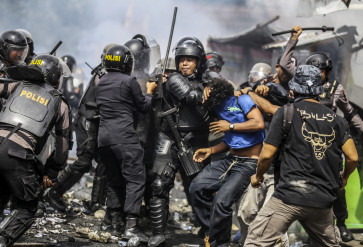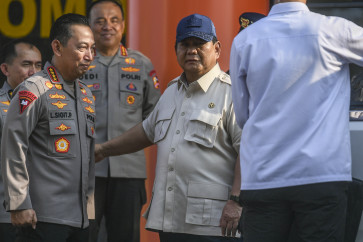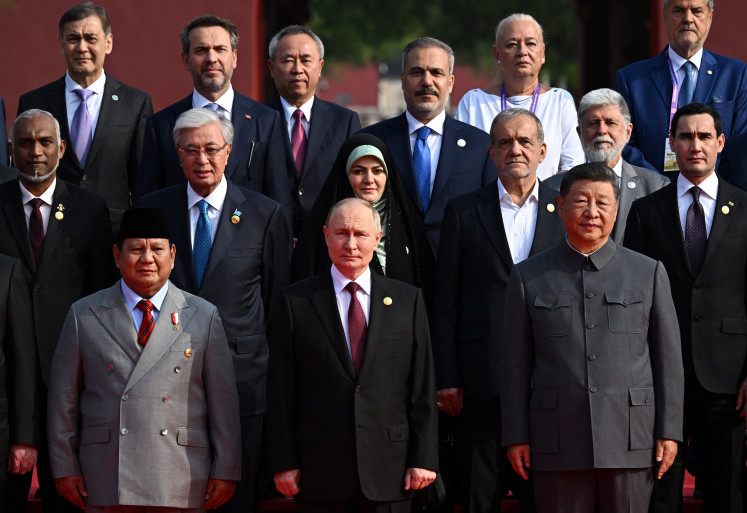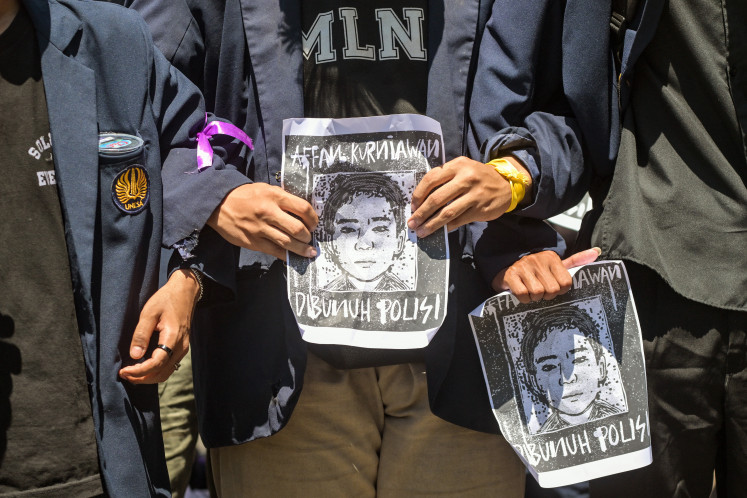Popular Reads
Top Results
Can't find what you're looking for?
View all search resultsPopular Reads
Top Results
Can't find what you're looking for?
View all search resultsA paradox of multitrack diplomacy
In 1996, John MacDonald and Louise Diamond wrote the book, Multi-track Diplomacy, which promoted the role of non-state actors in diplomatic theory
Change text size
Gift Premium Articles
to Anyone
I
n 1996, John MacDonald and Louise Diamond wrote the book, Multi-track Diplomacy, which promoted the role of non-state actors in diplomatic theory. This concept is now considered an alternative way of doing diplomacy.
Diplomacy is perceived as a simultaneous system of interaction between the state and non-state actor in order to gain peace. Previously, diplomacy was understood only as a matter of 'politics among nations' where the state was the only actor in international relations.
Since the 1990s, the world has witnessed shifts in international politics, mainly the emergence of non-state actors, such as NGOs, multinational corporations and transnational networks of think-tanks.
MacDonald cofounded the Institute of Multi-Track Diplomacy in 1992, which was influential in endorsing the concept to many stakeholders, particularly the UN.
ASEAN also recognizes 'track two' diplomacy through ASEAN-ISIS (Institutes of Strategic and International Studies) Network and its endorsement of the ASEAN People's Assembly, now the ASEAN People's Forum.
However, this concept has limits in addressing contemporary problems in international politics.
As an illustration, I was once invited to attend a dialogue with the ASEAN Committee of Permanent Representatives and ASEAN Secretariat. Several participants highlighted the importance of dialogue between the state, the ASEAN Secretariat and NGOs.
However, civil society members were reminded that they could come up with ideas, but they had to be delivered through the existing channels established in ASEAN to accommodate civil society's voices. So such dialogue does not necessarily reflect negotiation between state and non-state actors.
Similarly, at the latest ASEAN People's Forum in Kuala Lumpur, activists were disappointed because of a lack of dialogue between state representatives in discussing prominent issues in the region. Cambodian civil society organizations, for example, expressed disappointment because their expected representatives for interface meeting were replaced with lower-level officials.
These illustrations reflect a paradox in multitrack diplomacy in the political reality. Two lessons can be learned. First, multitrack diplomacy can be turned into a form of cooption or 'corporatism' when perceived by non-democratic states.
Instead of endorsing stakeholder participation, this concept was used to prevent transnational networks of NGOs from advocating their interests at the international level.
Second, multitrack diplomacy can prevent dialogue and negotiations with non-state organizations that are critical of states. Through 'diplomatic tracks', every demand would be responded to based on state-defined national interests and potentials for negotiation could be reduced.
In ASEAN, which still includes states with authoritarian backgrounds, states used multitrack diplomacy as a political tool to conserve state hegemony in ASEAN and a pretext for the state to avoid negotiation and talks with non-state actors.
These lessons have led us to search for more comprehensive approaches and solutions for state-non state relations in diplomatic theories. Multitrack diplomacy should also be an arena of negotiation between all stakeholders. Participation in a separate, partial track is not enough. Stakeholders should be given enough space to negotiate with the state.
In ASEAN, radicalizing multitrack diplomacy means giving a wider place for civil society to express their interests with their leaders. So far civil society's engagement with the state, in several countries, was primarily conducted only informally.
Before the ASEAN Community comes into effect at the end of this year, a challenge lies for every stakeholder. ASEAN is not a community of diplomats or businesspeople. ASEAN belongs to its people. Thus, every voice should be heard ; they should be given an opportunity to express their voices.
To go beyond multitrack diplomacy and propose a people-oriented diplomacy is a necessary task for every ASEAN stakeholder in the future.
____________________
The writer is a researcher at the ASEAN Studies Center, Gadjah Mada University in Yogyakarta.










